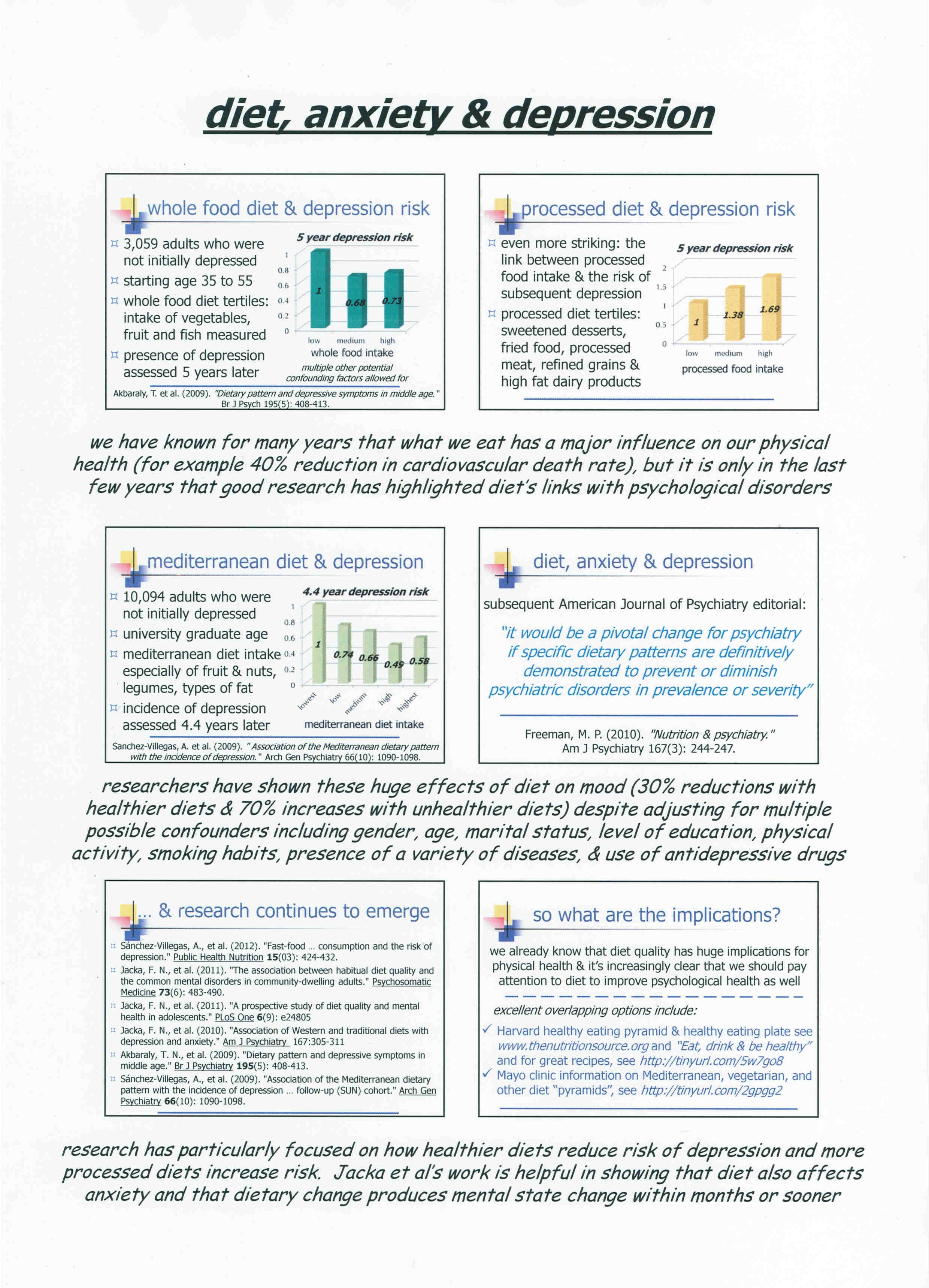Twelve recent research studies on diet, psychological symptoms & wellbeing (1st post): overall dietary quality & depression
Last updated on 8th April 2013
Glancing back over recent research studies that I have noticed & downloaded to my personal database, I was struck by a whole series on the effects of diet on psychological state. I've listed twelve that caught my eye in the last several months - this first of two posts details studies that focus more on overall dietary quality. The second post in the series focuses more on specific dietary components & psychological disorder. There are obviously lots of interesting developments in this important area.


